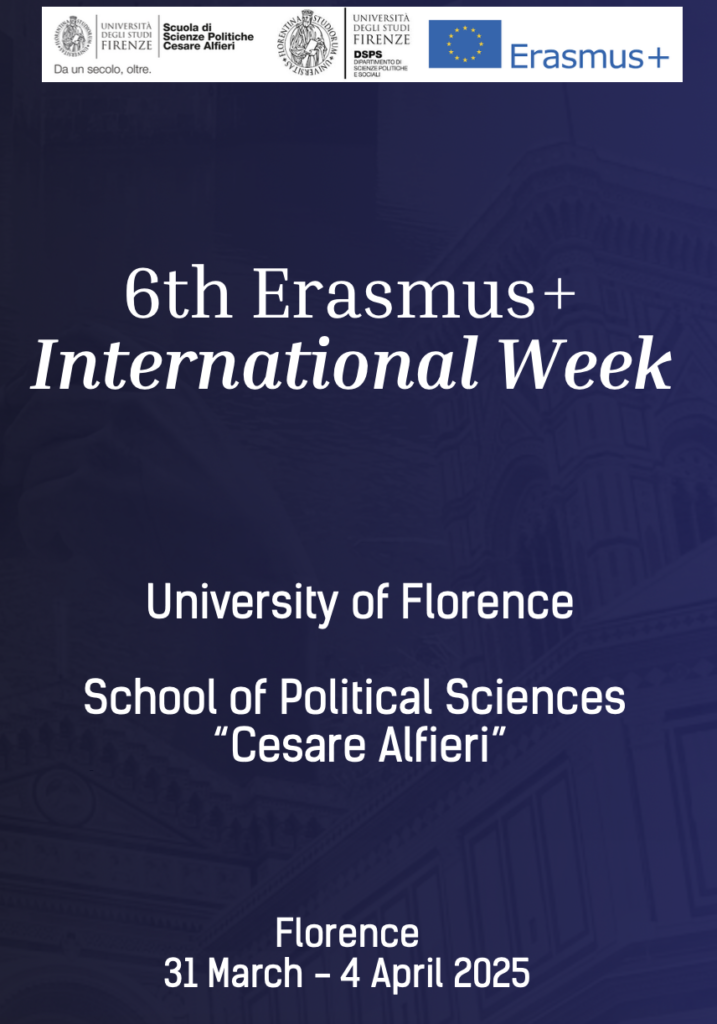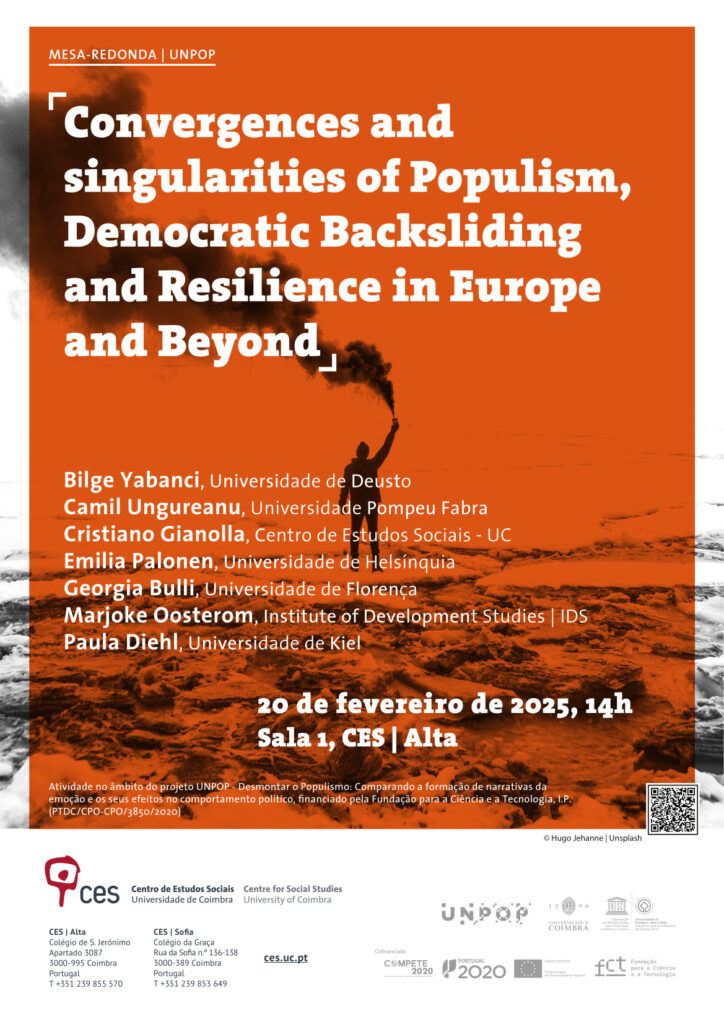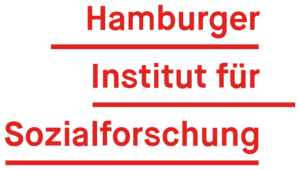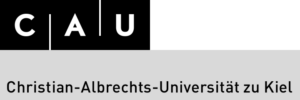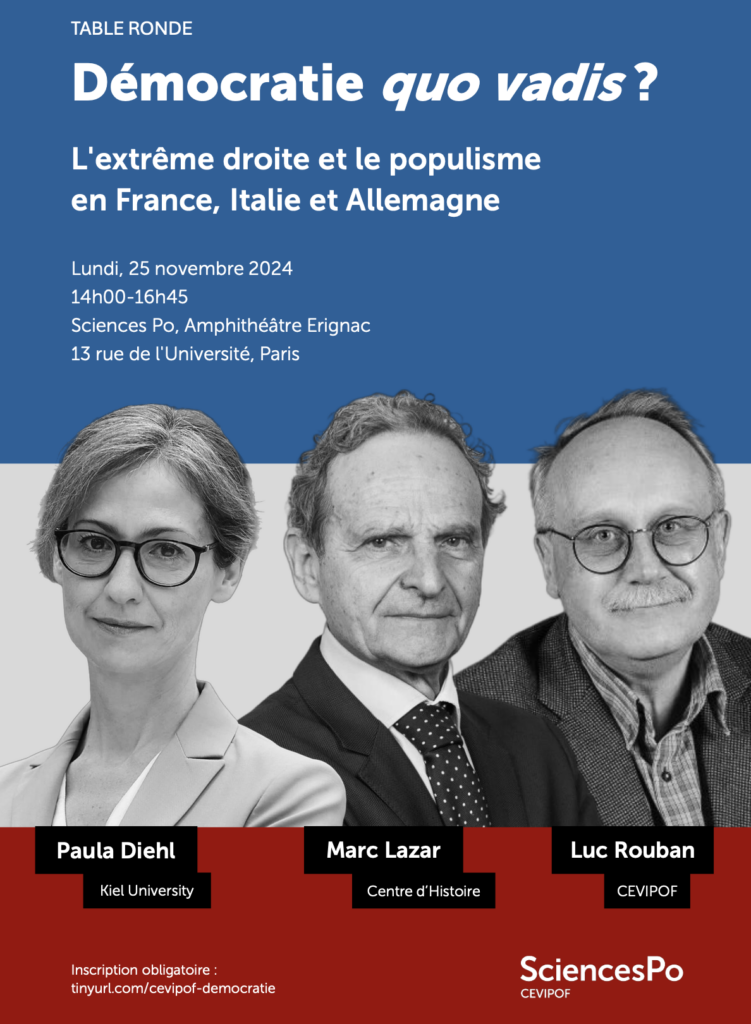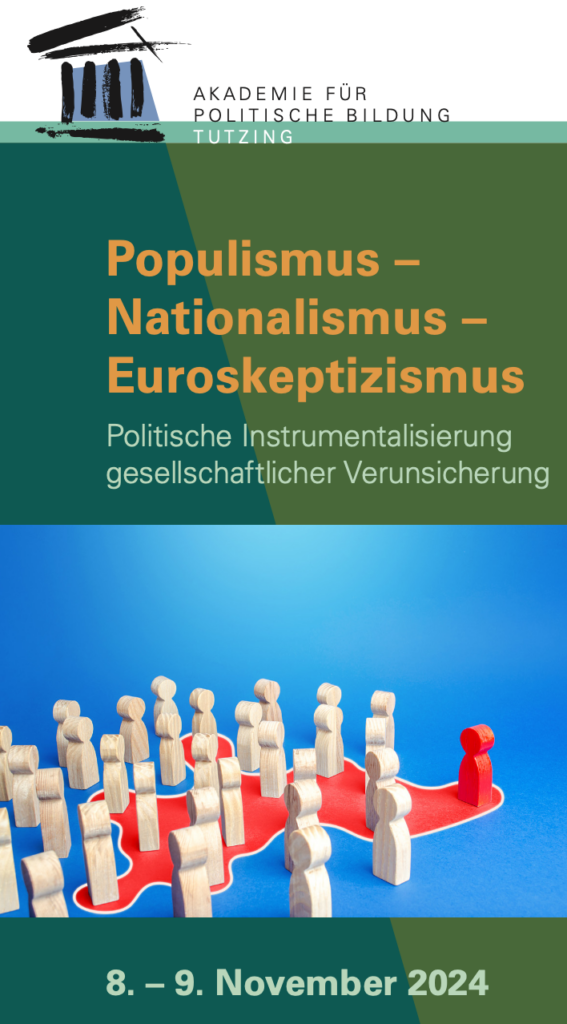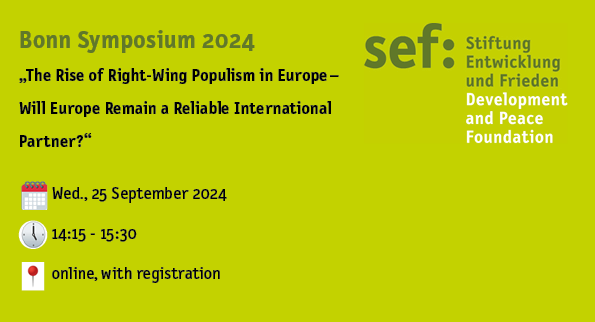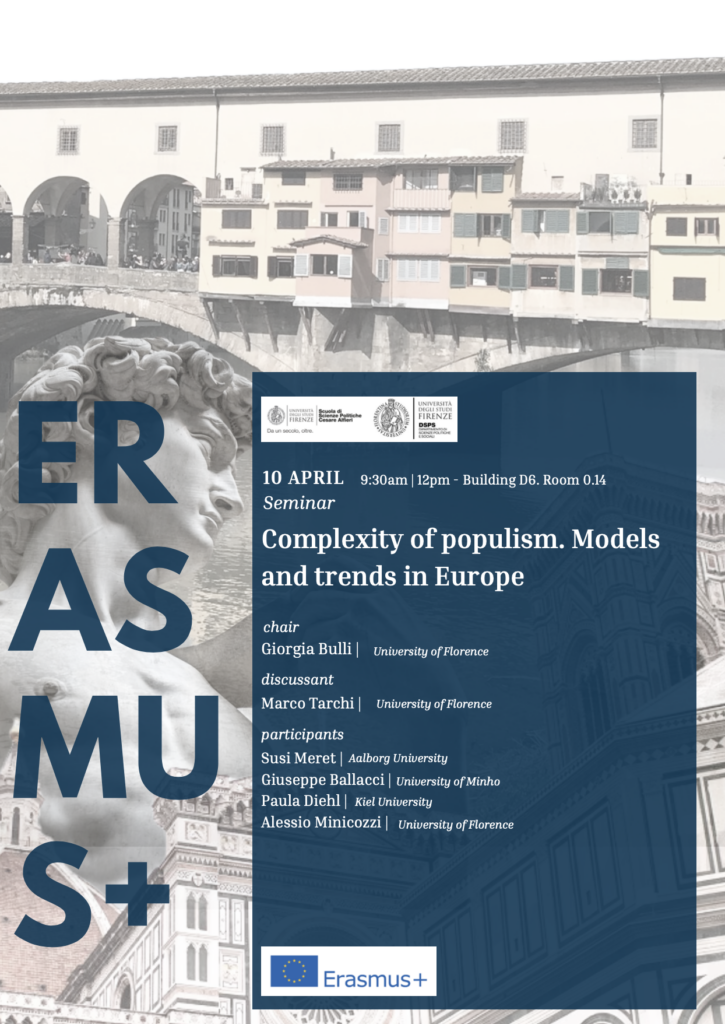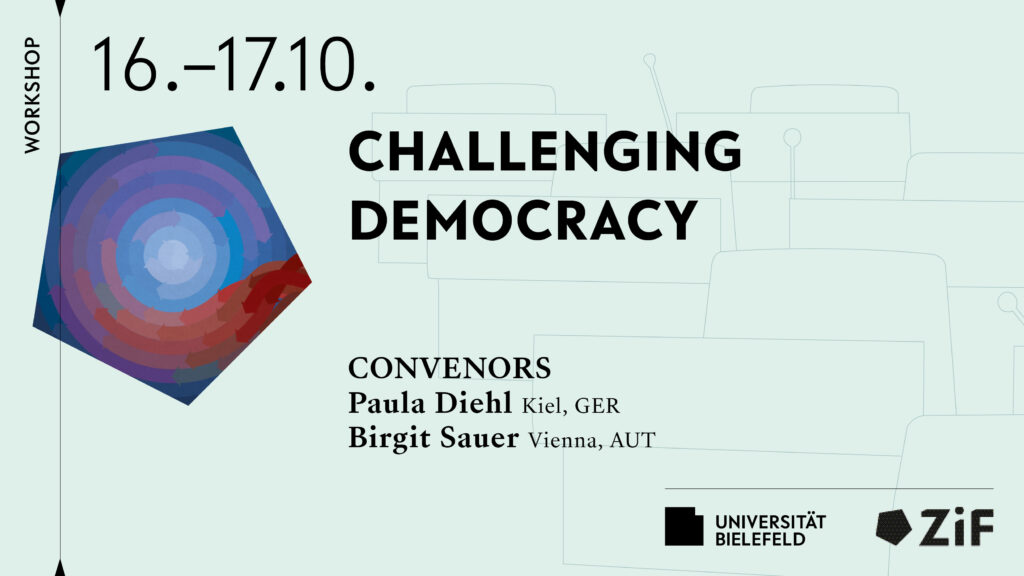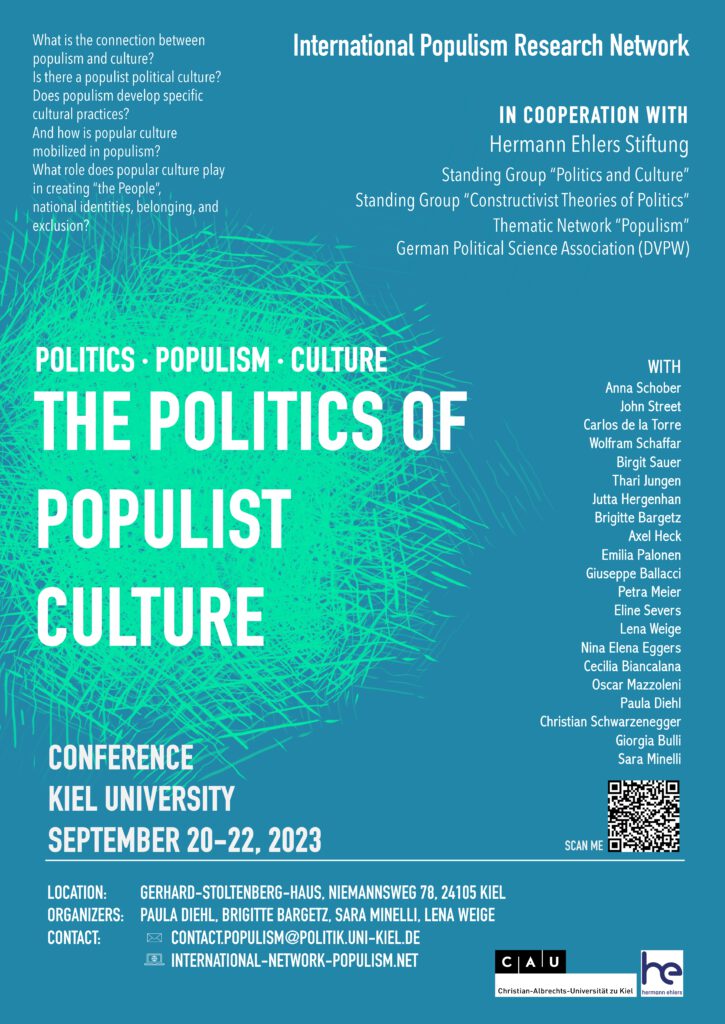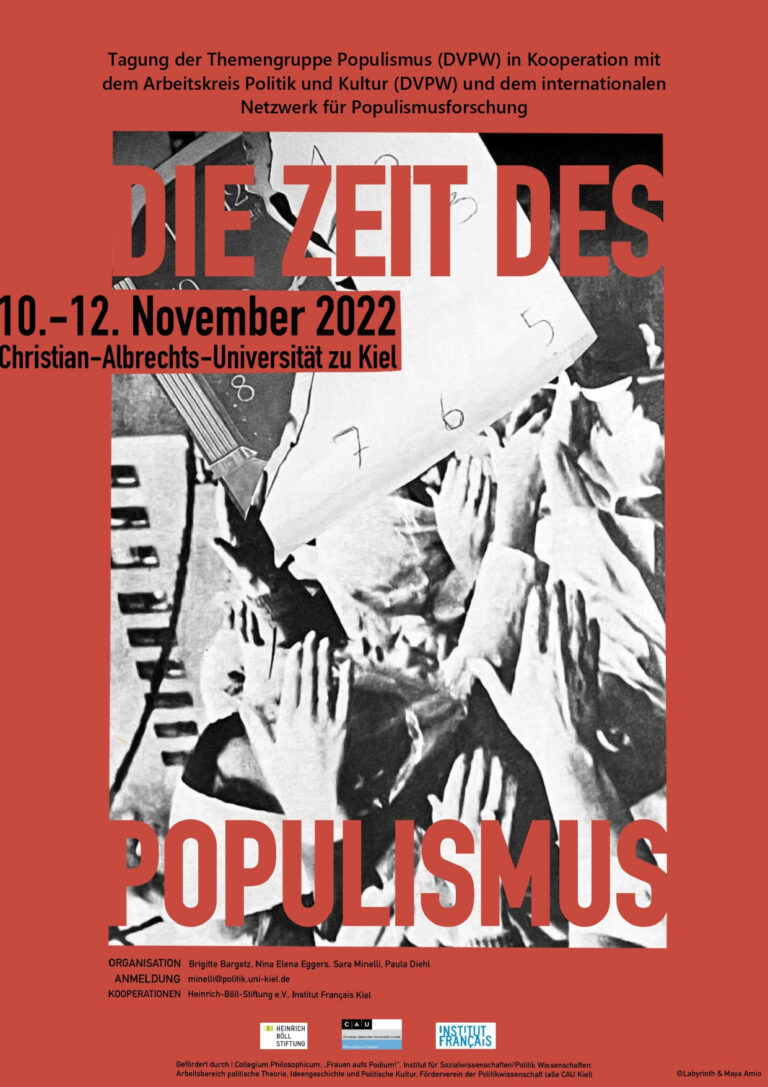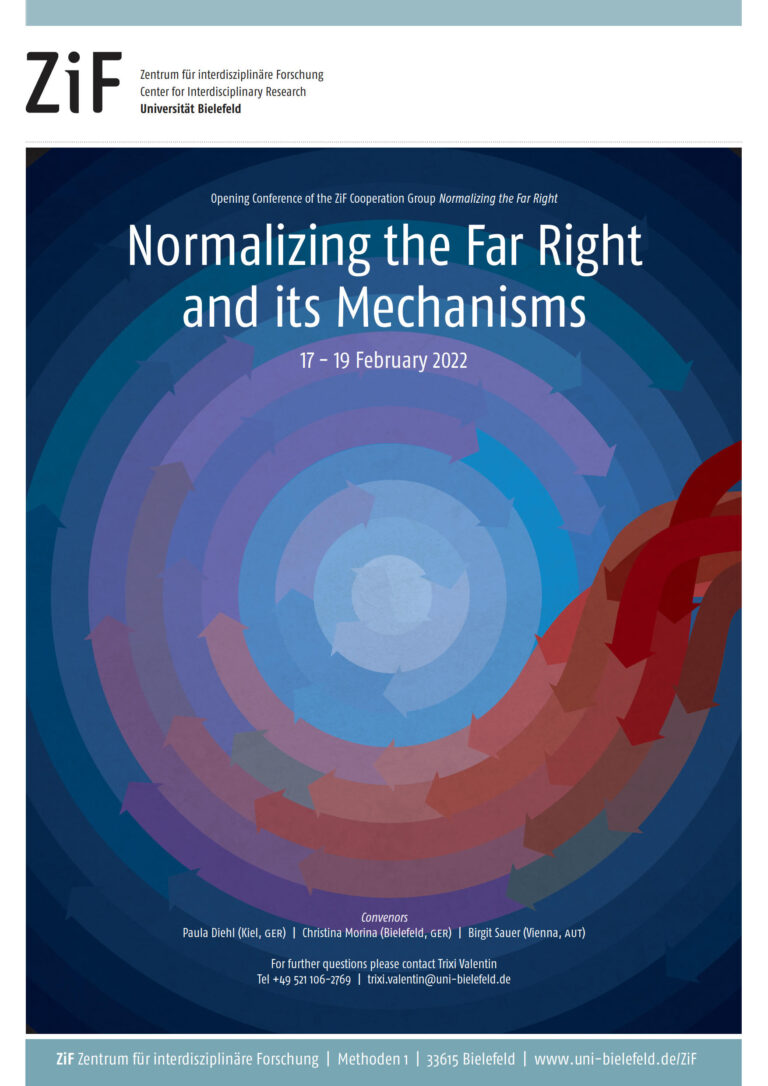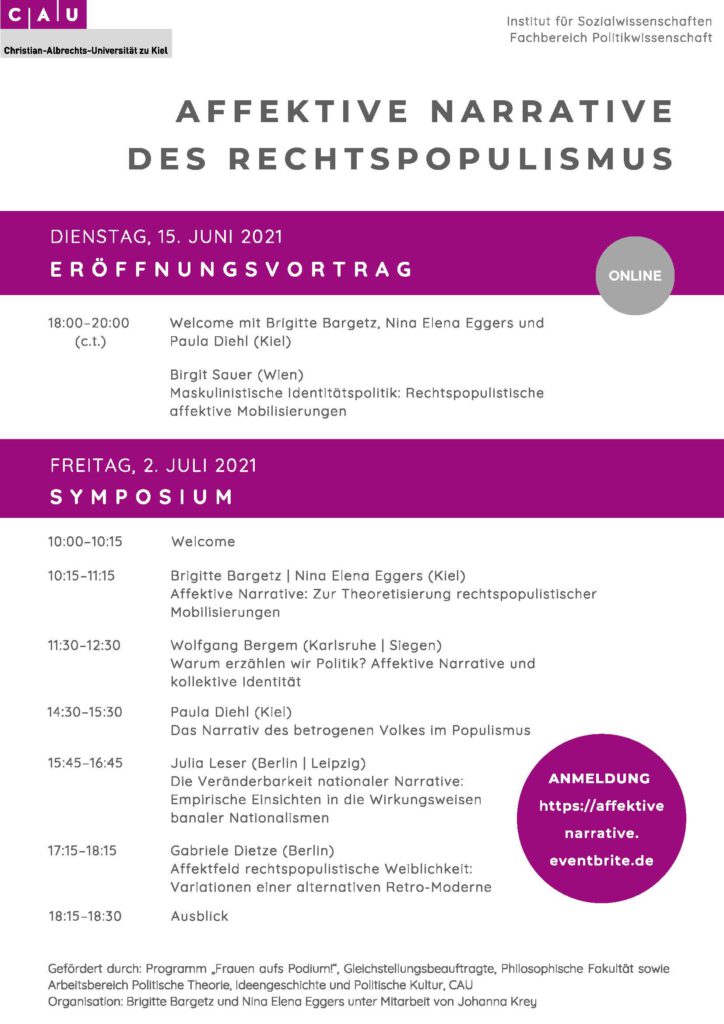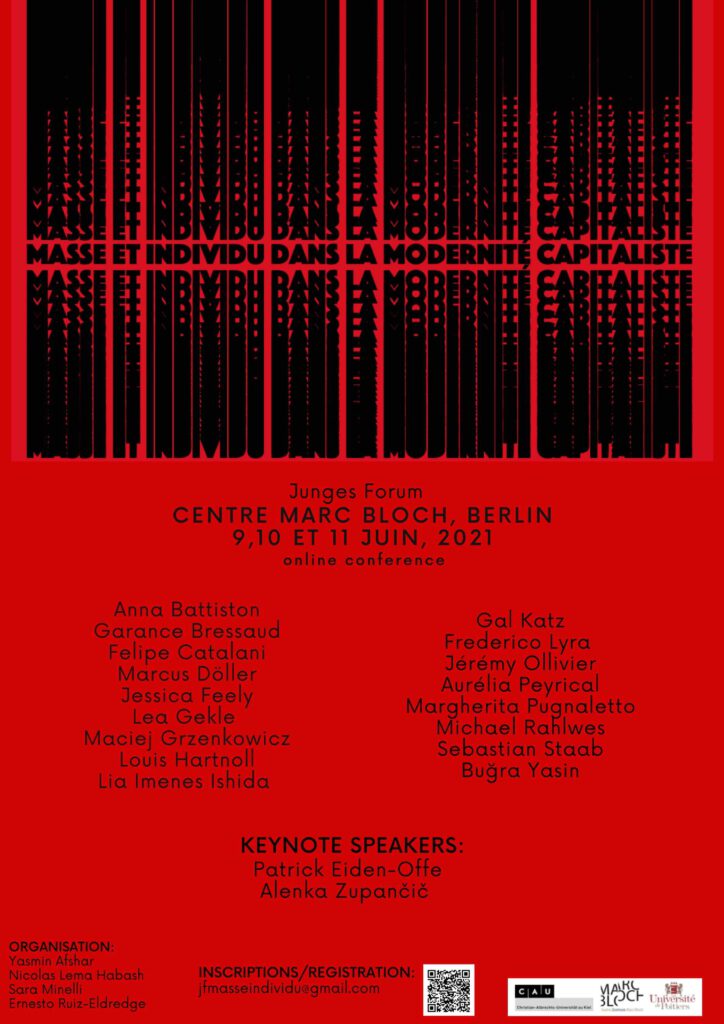Archiv
2025
LEIBNIZ RESEARCH ALLIANCE “VALUE OF THE PAST” – ANNUAL CONFERENCE 2025
LEIBNIZ RESEARCH ALLIANCE “VALUE OF THE PAST” – ANNUAL CONFERENCE 2025
Vorlesung von Paula Diehl
Populist Twists and the Dangers for Democracy
Öffentlicher Vortrag an der CAU Kiel
Wo geht die Reise hin? Die AfD zwischen Normalisierung und Radikalisierung
(TU Chemnitz)
18:00 – 20:00 Uhr
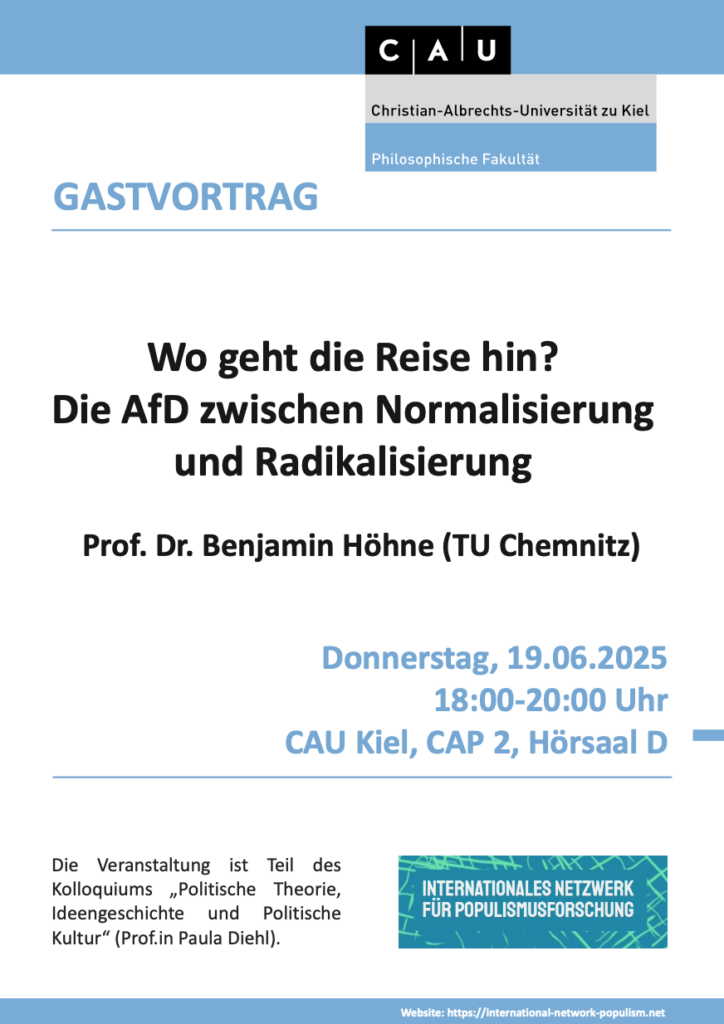
Paneldiskussion mit Paula Diehl
Wie können junge Menschen in der Flut digitaler Information den Durchblick behalten?
Keynote von Paula Diehl
Populism and Politainment
Diskussionsveranstaltung
Zerbrochene Masken: Was der Populismus über uns preisgibt
- Dr. Bendix Hügelmann (CEO People On The Hill)
- Anina Laura Pommerenke (Reporterin, Moderatorin und Nachrichtensprecherin für den Norddeutschen Rundfunk und ARD-Programme)
- Prof. Dr. Paula Diehl(Professur für Politische Theorie, Ideengeschichte und Politische Kultur an der CAU Kiel)
Roundtables, Seminars and Classes
6th Erasmus+ International Week
Round Table
Convergences and singularities of Populism, Democratic Backsliding and Resilience in Europe and Beyond
Workshop
Continuity and Innovation of the Far Right: Practices, Symbols and Discourses
- Political Theory, History of Ideas and Political Culture Section at Kiel University
- International Populism Research Network at Kiel University
The process of mainstreaming and normalizing far-right politics has a longer history that goes back at least to the emergence of the new right in the 1960s and 1970s. Over the past years, however, the strategic and discursive repertoire of the far right has undergone significant changes that need to be considered in order to make sense of its current rise to power. This workshop is dedicated to this relationship between continuity and innovation. Bringing together international scholars from a wide range of disciplines, it puts a particular emphasis on historical, transnational and intersectional research perspectives.
2024
Podiumsdiskussion
Demokratie quo vadis? Die extreme Rechte und der Populismus in Frankreich, Italien und Deutschland
Tagung – Akademie Für Politische Bildung, Tutzing
Populismus - Nationalismus - Euroskeptizismus: Politische Instrumentalisierung gesellschaftlicher Verunsicherung
Datum: 8.-9.11.2024
Ort: Akademie für Politische Bildung, Tutzing am Starnberger See
Kooperation: Hermann Ehlers Stiftung und CAU Kiel
Panel
“The Rise of Right-Wing Populism in Europe – Will Europe Remain a Reliable International Partner?”
At the European elections this year, populist movements have recorded considerable gains in votes in many countries. What does it mean for the future of the EU, if eurosceptics gain more influence in its institutions?
This will be discussed at the online Bonn Symposium 2024:
„The Rise of Right-Wing Populism in Europe – Will Europe Remain a Reliable International Partner?“ on Wednesday, 25 September, 14:15-15:30 hrs.
International Conference
Political Ideologies: Tracing the History of Concepts and Languages in a Global Context
The 25th International Conference of the History of Concepts Group (HCG) takes place in the city of Rio de Janeiro, Brazil, from 7-9 December 2024. It is hosted by the Rui Barbosa Foundation and the Institute of Social and Political Studies at the State University of Rio de Janeiro (IESP-UERJ). The main theme for this year’s conference is ideologies, with a particular emphasis on the historical construction of the concepts structuring political ideologies.
DVPW-PERSPEKTIVTAGUNG
Nichts steht mehr fest? Plurale Perspektiven auf politische Kontestation
Datum: 7. – 8. März 2024
Ort: Christian-Albrechts-Universität zu Kiel (Ludwig-Meyn-Straße 8)
Organisation: Laura von Allwörden, Elena Dück, Falk Ostermann
In Kooperation mit den DVPW-Themengruppen Außen- und Sicherheitspolitik, Diskursforschung und Internationale Organisation
Die Diagnose, dass wir in einer globalisierten Welt des Umbruchs und einer Zeit multipler Krisen leben, ist allgegenwärtig. Dies geht mit der Infragestellung bestehenden politischer Ordnungen einher, sei es auf nationaler oder auf internationaler Ebene. So sind Politisierung und Kontestation zu Phänomenen geworden, die alle Facetten des Handelns von Staaten sowie anderen internationalen, gesellschaftlichen und wirtschaftlichen Akteuren erfasst haben.
Seminar Series
POPULISM, DEMAGOGUERY AND RHETORIC IN HISTORICAL PERSPECTIVE (PDRHP)
Date:
14 March 2024, 4 pm
Location:
Centre for Ethics, Politics and Society, University of Minho (Portugal), online
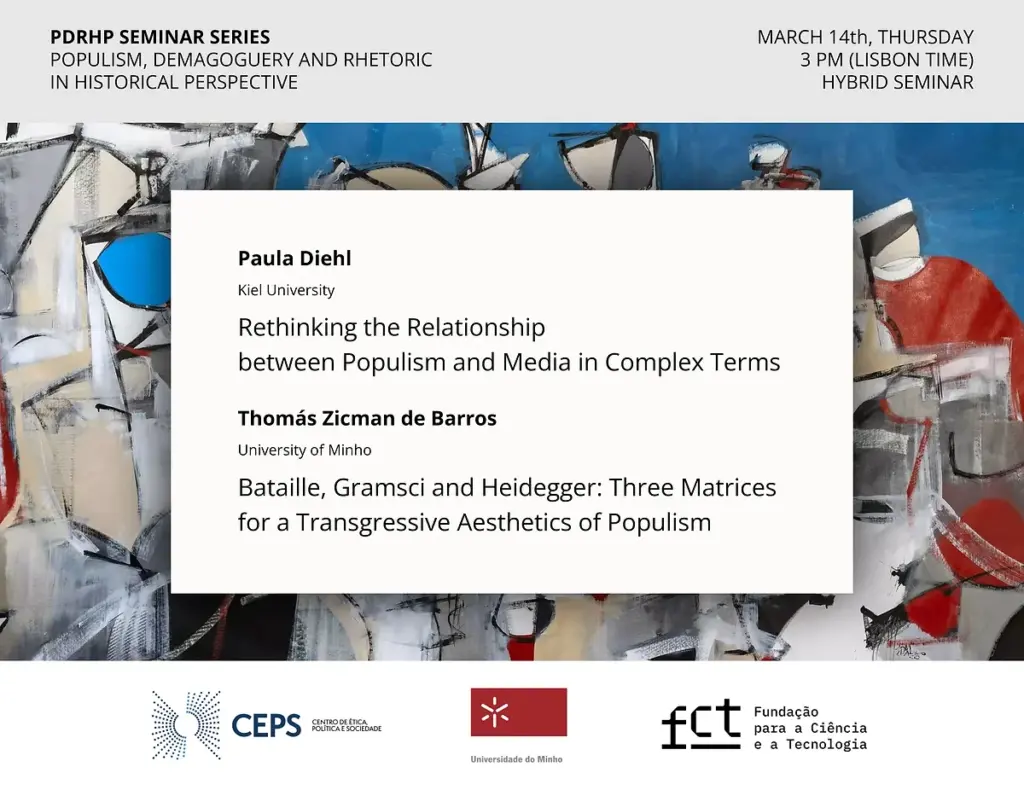
This hybrid session features two presentations. Paula Diehl (Kiel University) will discuss „Rethinking the Relationship between Populism and Media in Complex Terms“, and Thomás Zicman de Barros (CEPS, UMinho) will present „Bataille, Gramsci and Heidegger: Three Matrices for a Transgressive Aesthetics of Populism“.
PDRHP is a research project dedicated to the study of populism, demagoguery, and rhetoric in historical perspective, under the coordination of Giuseppe Ballacci, member of the International Populism Research Network at Kiel University.
For inquiries, contact gballacci@elach.uminho.pt or thomas.zicmandebarros@sciencespo.fr
LIVESTREAM
GIORGIA BULLI: DIE FASCHISTISCHE TRADITION IN ITALIEN
Date: 9 January 2024, 2:45 pm
Location: Kiel University
MA-Vorlesung Politische Theorie:
Zur Aktualität von Totalitarismus und Faschismus
Prof. Dr. Paula Diehl
Giorgia Bulli ist Senior Lecturer an der Fakultät für Politik- und Sozialwissenschaften der Università degli Studi di Firenze. Zudem ist sie Mitglied des Internationalen Netzwerks für Populismusforschung.
2023
LIVESTREAM
CARLOS DE LA TORRE: FASCISM AND POPULISM
Date: 19 December 2023, 2:45 pm
Location: Kiel University
MA-Vorlesung Politische Theorie:
Zur Aktualität von Totalitarismus und Faschismus
Prof. Dr. Paula Diehl
The elections of Donald Trump in 2016 and Jair Bolsonaro in 2019 in Brazil, their belligerent use of the presidency to transform democratic rivals into enemies, their praise for right-wing para-military groups, Bolsonaro’s nostalgia for dictatorship, and Trump’s attempt to stay in power using nondemocratic means have brought back the question of fascism and its relationship with populism. What are the boundaries between fascism and populism? How to classify European right-wing parties like the French National Rally, the Italian League, and others? Are they populist, nativist, and xenophobic, or postfascist? Could right-wing xenophobic populism mute into postfascism?
Challenging Democracy
Date: 16 – 17 October 2023
Location: Long Table, Zentrum für interdisziplinäre Forschung (ZiF), Universität Bielefeld
Convenors: Paula Diehl (Kiel University), Birgit Sauer (University of Vienna), Wilhelm Heitmeyer (Bielefeld University) and Mojca Pajnik (University of Ljubljana)
Conference of the International Network for Populism Research
Politics, Populism, Culture – The Politics of Populist Culture
Date: 20 – 22 September 2023
Location: Gerhard-Stoltenberg-Haus, Niemannsweg 78, 24105 Kiel
Organizers: Paula Diehl, Brigitte Bargetz, Sara Minelli, and Lena Weige
In cooperation with Hermann Ehlers Stiftung, the Standing Groups ‚Politics and Culture‘ and ‚Constructivist Theories of Politics‘, as well as the Working Group ‚Populism‘, German Political Science Association (DVPW)
With Anna Schober (U Klagenfurt), John Street (U East Anglia), Carlos de la Torre (U Florida), Wolfram Schaffar (U Passau), Birgit Sauer (U Vienna), Thari Jungen (Kunsthochschule, Mainz), Jutta Hergenhan (U Gießen), Brigitte Bargetz (U Kiel/WU Vienna), Axel Heck (U Kiel), Emilia Palonen (U Helsinki), Giuseppe Ballacci (U Minho), Petra Meier (U Antwerp), Eline Severs (U Brussel), Lena Weige (U Kiel), Nina Elena Eggers (U Hamburg/Bremen), Paula Diehl (U Kiel), Christian Schwarzenegger (U Bremen), Giorgia Bulli (U Florence), and Sara Minelli (U Kiel).
2022
Tagung der Themengruppe Populismus (DVPW) in Kooperation mit dem Arbeitskreis Politik und Kultur (DVPW)
Zeit des Populismus
Datum: 10. – 12. November 2022
Ort: Olshausenstraße 40 („Alte Mensa“)
Organisation: Brigitte Bargetz, Nina Elena Eggers, Sara Minelli, Paula Diehl
Die Tagung „Die Zeit des Populismus“ fand vom 10.11. bis zum 12.11.2022 in Kooperation mit der Heinrich-Böll-Stiftung e.V. und dem Institut Français Kiel an der CAU Kiel statt.
Die Beiträge näherten sich dem Phänomen der Zeit und Zeitlichkeit im Populismus auf vielfältige Weise, sowohl empirisch als auch theoretisch. Es wurde nicht nur die Frage gestellt, was es heißt, in einer „Zeit des Populismus“ zu leben, sondern auch diskutiert, auf welche Weise und mit welchen Narrativen die verschiedenen populistischen Bewegungen und Parteien Zeitlichkeit nutzen, und wie alternative Politiken der Zeit aussehen könnten. Die Beiträge zur Tagung lieferten so spannende Einblicke in die Vielschichtigkeit der Relation von Populismus, Zeit und Zeitlichkeit.
Podiumsdiskussion zur „Zeit des Rechtspopulismus“ im Rahmen der Tagung mit Ole Meinefeld, Johannes Kiess, Lea Liese und Carolin Wiedemann
Normalizing the Far Right and its Mechanisms
Date: 17 – 19 Februar 2022
Location: ZiF Bielefeld
Organizers: Paula Diehl (KIEL, GER), Christina Morina (BIELEFELD, GER), Birgit Sauer (VIENNA, AUS)
Members Core Group
Paula Diehl (Kiel, GER), Wilhelm Heitmeyer (Bielefeld, GER), Christina Morina (Bielefeld, GER), Mojca Pajnik (Ljubljana, SLO), Birgit Sauer (Vienna, AUS)
Speakers
Brigitte Bargetz (Kiel, GER), Mabel Berezin (Cornell, USA), Oliver Decker (Leipzig, GER), Gabriele Dietze (Humboldt, GER), Nina Eggers (Kiel, GER), Thomas Ernst (Antwerp, BEL), Ute Frevert (Berlin, GER), Virág Molnár (New York, USA), Julia Roth (Bielefeld, GER), Daniel Thiele (Vienna, AUT), Volker Weiß (Hamburg, GER), Ruth Wodak (Lancester, USA)
2021
DVPW–Kongress 2021
Panel: Vom Neoliberalismus zum autoritären Populismus. Geschlechterpolitische Herausforderungen
Ort: online
Organisation: Brigitte Bargetz (CAU Kiel), Nina Elena Eggers (CAU Kiel), Karsten Schubert (ZiF Bielefeld/ALU Freiburg)
Datum: 14. September 2021
Unterstützende Untergliederung(en): Sektion „Politische Theorie und Ideengeschichte“, Sektion „Politik und Geschlecht“, Arbeitskreis „Politik und Kultur“, Themengruppe „Populismus“
Das Panel geht dem Verhältnis von Neoliberalismus, autoritärem Populismus und „Anti-Genderismus“ aus kapitalismus- und rechtspopulismuskritischer, feministischer und queerer Perspektive nach. Wo und wie greift das Regieren sexueller Freiheit und sexueller Sicherheit in Bezug auf Autoritarismus und Neoliberalismus ineinander? Wie tragen rechtspopulistische LGBTI*Q-Feindlichkeit sowie Vorstöße zur Retraditionalisierung von Familien und Carework zur Entwicklung eines neoliberalen Autoritarismus bei? Und welche Analysen und Handlungsempfehlungen steuert die queere und feministische Theorie zur Demokratisierung der Demokratie in autoritären Zeiten bei?
Mit Vorträgen von: Gundula Ludwig (Universität Innsbruck), Paula Diehl (CAU Kiel) und Mike Laufenberg (Universität Jena)
Christian-Albrechts-Universität zu Kiel
Workshop: The Complexity of Populism
Datum: 19. – 21. Juli 2021
Ort: online
Organisation: Brigitte Bargetz und Paula Diehl
Christian-Albrechts-Universität zu Kiel
Affektive Narrative des Rechtspopulismus
Datum: 15. Juni und 2. Juli 2021
Ort: online
Organisation: Brigitte Bargetz und Nina Elena Eggers
Erzählen ist ein zentrales Moment der Politik. Über Erzählungen werden Erinnerungen aufgerufen, politische Erfahrungen verarbeitet sowie Verhältnisse (re)imaginiert und legitimiert. Erzählen ist dabei immer auch affektiv: Narrative wirken affizierend, in ihnen werden Gefühle sortiert, emotionale Reaktionen intelligibel gemacht und Affekte evoziert. Ebenso schreiben sich Vergangenheit und Zukunft in politische Narrative affektiv ein. Das Zusammenspiel des Politischen, Affektiven und Narrativen zeigt sich auch im gegenwärtigen Erstarken des Rechtspopulismus: wenn etwa Björn Höcke jubelnde Mengen mit einer Erzählung von wiedererwachender Männlichkeit und nationaler Wehrhaftigkeit affiziert oder Donald Trump eine Geschichte des ehemaligen amerikanischen Präsidenten und Sklavenhalters Andrew Jackson als großherzigen, im Angesicht des Bürgerkrieges wütend werdenden Friedensstifters erzählt. Gemeinsam mit inter/nationalen Expert*innen, die zu Affekt, Narrativen, Rechtspopulismus, Geschlechterverhältnissen, Rassismus und Nationalismus arbeiten, werden wir diese Querverbindungen in konzeptueller und zeitdiagnostischer Perspektive beleuchten.
Centre Marc Bloch, BERLIN
Masse und Individuum in der kapitalistischen Moderne
Datum: 9. – 11. Juni 2021
Ort: online
Veranstalter*innen: Yasmin Afshar (Humboldt-Universität zu Berlin/Centre Marc Bloch), Nicolas Lema (Université Paris 1 Panthéon-Sorbonne), Sara Minelli (CAU Kiel/Centre Marc Bloch), Ernesto Ruiz-Eldredge (Goethe-Universität Frankfurt/Université de Poitiers)
Seit seinem Aufkommen zu Beginn der kapitalistischen Moderne impliziert der Begriff „Masse“ eine gewisse reaktionäre Auffassung von kollektivem Handeln, in der die Urteilsfähigkeit des Einzelnen zugunsten eines irrationalen Verhaltens angeblich in den Hintergrund tritt. Die jüngsten großen Massendemonstrationen, die außerordentliche Bedeutung sozialer Netzwerke, die erneute Anziehungskraft von Verschwörungstheorien sowie die sogenannten „populistischen“ Phänomene haben den Begriff der „Masse“ wieder zur Diskussion gestellt. Ist es möglich, von der „Masse“ zu sprechen, ohne in eine vollständige Verurteilung kollektiven Handelns oder, im Gegenteil, in eine unreflektierte Verherrlichung der Menge zurückzufallen? Welche Modi der politischen Subjektivierung sind in der Organisation der Massen, von den Fabrikarbeiter*innen bis zu den „kleinbürgerlichen Massen“, zu finden? Wie wird die moralische und psychische Autonomie der Individuen durch die kapitalistische Organisation der Gesellschaft beeinträchtigt? Und was lässt sich über das immer wiederkehrende Phänomen der massenhaften Anhänglichkeit an Verschwörungstheorien sagen: Sind die Massen die Beute einer reinen ideologischen Herrschaft, oder zeigen sie im Gegenteil einen Willen zum Wissen, der den „Eliten“ entgeht?
2020
Christian-Albrechts-Universität zu Kiel
Workshop: Theory and Methods of Populism Research
Datum: 24. – 26. September 2020
Ort: online
Organisation: Brigitte Bargetz und Paula Diehl
Impressum:
Institut für Sozialwissenschaften/Politikwissenschaft
Olshausenstr. 40
24118 Kiel
Represented by: Prof. Dr. Paula Diehl (Director)
Olshausenstr. 40
24118 Kiel
phone: +49 431 880-5217
mail: contact.populism@politik.uni-kiel.de
Liability for links: Our offer contains links to external websites of third parties, on whose content we have no influence. Therefore, we cannot accept any liability for any external content. The respective provider or operator of the site is always responsible for the content of the linked sites. The linked pages were checked for possible legal violations at the time of linking. Illegal content was not identified at the time of linking.However, a permanent control of the content of the linked pages is not reasonable without concrete evidence of a violation of the law. If we become aware of any infringements, we will remove such links immediately.
Copyright: The content and works on these pages created by the site operators are subject to German copyright law. The reproduction, editing, distribution and any kind of use outside the limits of copyright law require the written consent of the respective author or creator. Downloads and copies of these pages are only permitted for private, non-commercial use.
Insofar as the content on this site was not created by the operator, the copyrights of third parties are observed. In particular, third-party content is identified as such. Should you nevertheless become aware of a copyright infringement, please inform us accordingly. If we become aware of any infringements, we will remove such content immediately.
Webdesign by: Lilit K
Contact via mail

